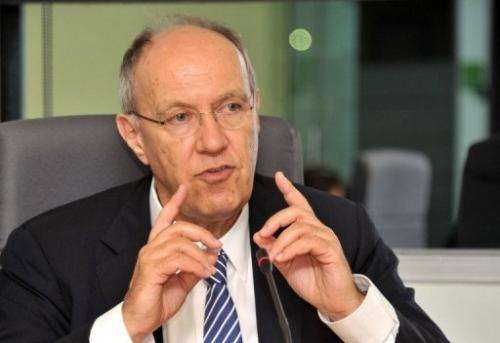Cybersquatting cases reach record in 2012

The number of cases of alleged cybersquatting handled by the World Intellectual Property Organisation jumped five percent to reach a record 2,884 last year, the head of the UN agency said Thursday.
"The areas where cybersquatting is most prevalent, judging by the cases, are retail, fashion and banking and finance," said WIPO director general Francis Gurry.
"The simple explanation is the increased use of the Internet, which increases the potential infringers," he told reporters.
Cybersquatting refers mainly to the practice of registering, trafficking in, or using an Internet domain name with the intention of profiting from the goodwill of a trademark belonging to someone else.
Since 2000, WIPO has provided an arbitration service which enables complainants who dispute the right to domain names to avoid potentially costly litigation, which can also be complicated when the parties reside in different countries.
WIPO's arbitrators are empowered to award complainants a domain name if they find that the accused party has registered it abusively, for example to draw Internet traffic.
"We are very proud of the fact that this is a very international procedure. It caters for the international character of the Internet," Gurry said.
The United States topped the table for both complainants, with 798 cases, and accused parties, with 784.
Second in the latter category was China—often criticised by Western business over its policing of intellectual property rules—with alleged cybersquatters there targeted in some 500 cases.
Most of the rest of the complainants are based in Europe, notably Britain, France, Germany, Denmark and Switzerland.
In contrast, WIPO heard just nine cases from Chinese complainants last year.
But the geography of cyber disputes is shifting, according to Erik Wilbers, head of WIPO's mediation and arbitration centre.
"Traditionally, the United States has been and continues to be the largest location of complainants and also the largest location of respondents parties," he said.
"However, there is an evolution there (linked) to the use of the Internet (which) relatively speaking is probably moving east to Asia, China, Southeast Asia, the emerging economies. They are all becoming bigger players on the Internet, including in domain name registrations," he said.
Asian countries are set to feature increasingly on the complainant side, he added.
(c) 2013 AFP



















